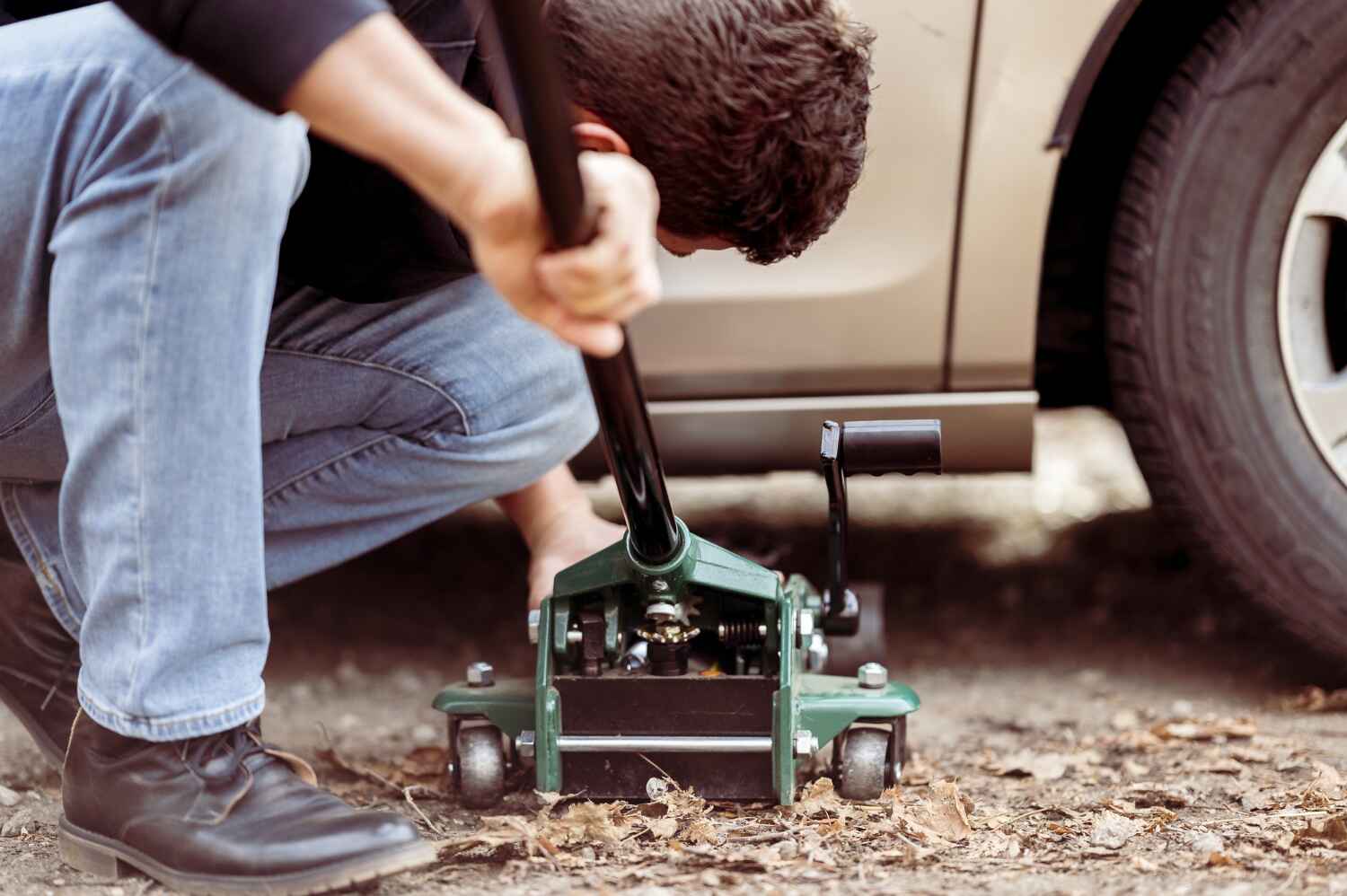A floor jack is an essential tool for any garage, whether you’re a professional mechanic or a DIY enthusiast. It allows you to lift vehicles safely and efficiently, making tasks like tire changes, brake work, and undercarriage inspections possible. However, like any piece of equipment, a floor jack requires regular maintenance to function correctly and ensure safety. Neglecting maintenance can lead to leaks, malfunctions, and even complete failure, which can be dangerous. In this article, we’ll go over the essential steps for maintaining your floor jack and keeping it in top condition.
- Regular Inspection
Before using your floor jack, always perform a quick inspection to check for signs of wear and tear. Look for:
- Hydraulic fluid leaks: If you notice any oil pooling around the base of your jack, it could indicate a leak in the hydraulic system.
- Cracked or damaged seals: Seals keep hydraulic fluid from leaking. Over time, they can wear out and need replacement.
- Loose or worn-out wheels: If the wheels aren’t rolling smoothly, dirt or debris may be causing an obstruction, or the bearings could be wearing out.
- Bent or damaged lifting arm: The arm of your jack should always be in perfect shape. Any sign of bending or warping means it’s unsafe to use.
- Keep It Clean
Dirt and debris can cause significant damage to your floor jack over time. A simple cleaning routine can help prevent buildup and keep all moving parts functioning smoothly.
- Wipe down your floor jack after each use with a clean cloth.
- Remove any grease, dirt, or grime that may accumulate around moving parts.
- Clean the wheels to prevent sticking or uneven movement.
- Lubrication Is Key
Proper lubrication keeps all moving parts of your floor jack working efficiently and prevents premature wear. Apply grease or machine oil to the following areas:
- The pivot points: These areas require lubrication to move smoothly under pressure.
- The wheels and casters: A little oil on the bearings will keep them rolling without resistance.
- The release valve: A stuck release valve can make lowering your vehicle difficult, so occasional lubrication helps.
- Check and Replace Hydraulic Fluid
Hydraulic fluid is the lifeblood of your floor jack. If the fluid level is too low, the jack may not lift properly. If it becomes contaminated, it can lead to poor performance.
- Check the hydraulic fluid level: Most floor jacks have a fill plug that allows you to check the fluid level. Make sure it’s at the proper level.
- Use the right type of hydraulic fluid: Always refer to the manufacturer’s recommendations for the correct fluid.
- Bleed the system if necessary: If air gets trapped in the hydraulic system, it can cause your jack to operate inefficiently. To bleed it, open the release valve and pump the handle a few times before closing the valve again.
- Store It Properly
Storing your floor jack in the right way can extend its lifespan.
- Keep it in a dry area: Moisture can cause rust, which can weaken the jack over time.
- Release pressure before storing: Always lower the jack completely to prevent unnecessary stress on the hydraulic system.
- Use a dust cover: If possible, cover your floor jack to keep dust and debris from settling on it.
- Inspect the Dump Brace
The dump brace is a crucial component in some floor jack designs, helping to control the release of hydraulic pressure when lowering the jack. Ensure this part is functioning correctly and free of damage or excessive wear. If the dump brace is not in proper condition, it can lead to sudden drops or instability when lowering your vehicle, posing a serious safety hazard.
- Test the Jack’s Performance
Periodically test your jack to ensure it is functioning correctly. Lift a test load slightly off the ground and check for:
- Smooth lifting and lowering motion.
- Any unusual noises or resistance.
- Stability under pressure.
If you notice any issues, discontinue use and address the problem before attempting to lift a vehicle.
Maintaining your floor jack is essential for both safety and longevity. Regular inspections, cleaning, lubrication, and hydraulic fluid checks will keep your jack in peak working condition. Don’t forget to inspect components like the dump brace and release valve to ensure smooth and safe operation. By following these maintenance tips, you’ll extend the life of your floor jack and keep your automotive projects running smoothly for years to come.
































